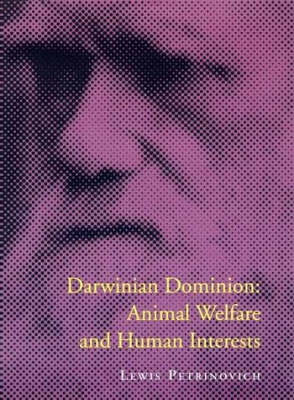Bradford Books
1 total work
The controversial subject of this book is the permissible use of animals by humans. Lewis Petrinovich argues that humans have a set of cognitive abilities, developing from a suite of emotional attachments, that make them unique among species. Although other animals can think, suffer, and have needs, the interests of members of the human species should triumph over comparable interests of members of other species. This book is the third in a trilogy concerned with the morality of various actions that affect the birth, life, and death of organisms. Using principles of moral philosophy, biology, evolutionary theory, neurophysiology, medicine, and cognitive science, Petrinovich discusses such topics as fetal and prenatal development, development of the mind and brain, animal liberation, morality and animal research, the eating of animals, keeping animals in zoos and as pets, and the importance of biodiversity. In the epilogue, he summarizes the main issues and discusses the moral principles governing their resolution.
